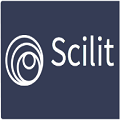Submissions
Submission Preparation Checklist
As part of the submission process, authors are required to check off their submission's compliance with all of the following items, and submissions may be returned to authors that do not adhere to these guidelines.- The submission has not been previously published, nor is it before another journal for consideration (or an explanation has been provided in Comments to the Editor).
- The submission file is in OpenOffice, Microsoft Word, or RTF document file format.
- Where available, URLs for the references have been provided.
- The text is single-spaced; uses a 12-point font; employs italics, rather than underlining (except with URL addresses); and all illustrations, figures, and tables are placed within the text at the appropriate points, rather than at the end.
- The text adheres to the stylistic and bibliographic requirements outlined in the Author Guidelines.
Copyright Notice
All QTanalytics journals are published Open Access. Articles are licensed under an open access licensed under Creative Commons Attribution-NonCommercial 4.0 International License. In addition, the article may be reused and quoted provided that the original published version is cited. These conditions allow for maximum use and exposure of the work, while ensuring that the authors receive proper credit.
Privacy Statement
QTanalytics values our relationship with you and recognises the importance of respecting and protecting your personal information and privacy. This policy (together with any other resources referred to in it) set out the basis on which any personal information you provide to us (or data we collect about you from other sources) will be processed (meaning collected, stored, and otherwise used) by us.
Information you provide to us may include your name, email address, mailing address, telephone number, academic institution, affiliation, job title, subject specialism during the registration to use any of our websites, products or services, subscribe to one of our services, search for a product, place an order, participate in a discussion group, request a complimentary copy of a book, make an application for employment or report a problem with our site or request content or other information from us..
In limited circumstances, we may collect data that you have made available in the public domain, such as your contact details, research interests, courses that you teach and the institution that you are based at. When we do this, we carefully consider whether do so is in your interest and any impact on your rights, and we will inform you as soon as practically possible about our use of your data and your right to object to this and to unsubscribe from any communications from us.
Information from other sources – we also work with third parties and may receive information about you from them.
We work with business partners, such as web hosting providers, email service providers and list brokers, to deliver our products, services and communications, and they may provide us with additional information about you. This could include details of content that you have viewed or requested through their websites, or details of which email communications from us you viewed or clicked on.
We may obtain your personal details as a result of a journal transfer or business acquisition, or from societies and associations that we work with.
The information we may collect about you in this way may include the Internet Protocol (IP) address used, your browser type and version, the type of device used, and time zone setting, etc. We may also collect information about each visit you make to our website, including which website you were on immediately before you navigated to our sites, and how you have progressed through and from our sites – as well as content you have searched for or viewed on our sites.
License to Use Journal Articles and Related Content
Article in VEETHIKA are published open access under the Creative Commons Attribution-NonCommercial 4.0 International License. The CC BY-NC 4.0 license allows for maximum dissemination and re-use of open access materials and is preferred by many research funding bodies. Under this license users are free to share (copy, distribute and transmit) and remix (adapt) the material. You must give appropriate credit, provide a link to the license, and indicate if changes were made. Non-commercial You may not use the material for commercial purposes.

Please note: For the terms set in italics in the summary above further details are provided on the Creative Commons web page from which the summary is taken (https://creativecommons.org/licenses/by-nc/4.0/). Users may request for any change in permission or question regarding licensing by emailing at support@qtanalytics.in.
How we use your information (and the lawful bases for that processing)
We use information held about you in the following ways: 1) To deliver our products and services to you – we may use your personal information to: carry out our obligations arising from any contracts entered into between you and us and to provide you with the information, products and services that you request from us (as is necessary for the performance of those contracts); notify you about changes to our service (as is necessary for the performance of a contract to which you are a party and/or as is necessary for our legitimate interests); allow you to access restricted areas of our websites, when you choose to do so (which may rely on your consent for the processing of your personal information which is necessary for giving you access to those restricted areas);
To improve the effectiveness of our products, services and marketing communications – we may use your personal information (in each case as is necessary for our legitimate interests or exceptionally where you have given your consent) to:
- administer our websites and for internal operations, including troubleshooting, data analysis, testing, research, statistical and survey purposes;
- improve our websites to ensure that content is presented in the most effective manner for you and for your computer or device;
- keep our websites safe and secure;
- measure or understand the effectiveness of advertising we deliver to you and others, and to deliver relevant advertising to you;
- provide you with information about other goods and services we offer that are similar to those that you have already purchased or enquired about, provided that you have not told us that you do not wish to receive this information (as is necessary for our legitimate interests);
- make suggestions and recommendations to you about goods or services that we believe may interest you, based on your previous transactions, behaviour, subject interests and other information that we may hold about you and your institution or organization.
Your marketing preferences
If you would like to update your details, including details of how you prefer to be contacted for marketing purposes, you can do this by Sending an email to support@qtanalytics.in/qtanalyticsindia@gmail.com and indicating your new preferences
- If you wish to unsubscribe from marketing emails from QTanalytics you can do send us an email at qtanalyticsindia@gmail.com.
- Sharing information with third parties
QTanalytics Publishing may share your personal information with our business partners who are providing a service to us, for example:
- a platform for a QTanalytics web-based product;
- a provider of web analytics services; or
In addition, where the products or services that you have accessed via QTanalytics are provided by us on behalf of a third party such as an academic society or association, we may share your details with them, unless you have asked us not to.
We may also transfer personal data of article authors, editor and board members and subscribers to our journals in the event that a journal transfers to another publisher (and including where, for example, your personal information is included on a marketing list which is transferred as a significant asset in a business sale or asset sale).
Contact us
If you have any comments, questions or concerns about anything you have read on this page or you are concerned how your personal information has been handled by QTanalytics, you can contact our Information Privacy Officer at qtanalyticsindia@gmail.com.
Changes in our Privacy Policy
If we make changes to this policy we will detail them on this page. If it is appropriate we may provide you with details by email; we suggest that you regularly visit this page to see any changes or updates to this policy.
This policy was last updated in November 2022.






 journals@qtanalytics.in, support@qtanalytics.in | Phone: +91-9458270556
journals@qtanalytics.in, support@qtanalytics.in | Phone: +91-9458270556